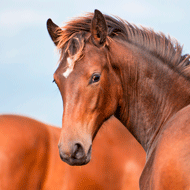
World Horse Welfare took in 259 horses in 2014
There has been a significant rise in horse welfare concerns, according to World Horse Welfare.
The equine charity say that in the last year alone they took in 259 horses, which is a 43 per cent rise on their yearly average.
One alarming trend they are experiencing is the rise in the number of large groups of 10 or more horses being brought into their rescue and rehoming centres.
Deputy chief executive Tony Tyler, said: "The pressure this puts on our centres is compounded by the fact that all too often these groups consist of mares and stallions, so there are invariable mares who arrive with us in foal."
In 2014, World Horse Welfare re-homed over 300 horses, ponies and donkeys, which is a ten-year record.
Tony added that January 2015’s figures show that the enthusiasm for rehoming is stronger than ever: “Early indications for January are very encouraging for another record-breaking year and demonstrate that people really do see rehoming as a safe and viable option.
"Frustratingly, however, the number of horses needing urgent rescue and rehabilitation far outweighs the number being re-homed – the need is greater than ever.”



 The Animal and Plant Health Agency (APHA) has updated its online reporting service for dead wild birds.
The Animal and Plant Health Agency (APHA) has updated its online reporting service for dead wild birds.